I have just returned home from my first Bonenkai – the Japanese version of the Western Xmas party. Bonenkai means “forget the year”. While there is no tradition of Christmas here, as my last post explains in great detail, great store is placed in the year-end/New Year. So it’s a time to bring the year just gone to a close and to begin to look forward to the year ahead with renewed spirits of comradeship and shared endeavour.
Naturally, this is best accomplished with the aid of copious amounts of alcohol.
This evening’s do was courtesy of my iaido dojo. I say the word “my” with a good deal of pride, because I have today been formally accepted as a member of this dojo. This is actually a real honour and one that I am personally very thrilled about. I won’t bore you, dear reader, with the details but suffice to say, the lineage of my teacher – and therefore my own learning – can now be traced back over 450 years in a direct, unbroken line. It means a lot to me that I have been allowed to share in this treasured heritage.
But aside from all that, tonight was fun. I feel like I have joined a new little family. And I feel that I am a genuine part of it rather than just the “token gaijin”. I have read blogs by other western martial arts students in Japan – some of them in reference specifically to my dojo – where they have expressed a sense of bitterness about feeling “excluded”; of being allowed to participate, but not feeling part of the group. I am a bit perplexed by this, as this has not been my experience. It appears to me there can be only two explanations: Either I am too dumb to have noticed that I am being “excluded” or the person complaining of such exclusion has had a different experience to me. I genuinely feel it must be the latter, although I feel at a loss to explain why that should be the case. I suspect, however, that it’s something to do with people’s expectations.
Before joining this dojo, I had read on a particular blog about the “intense” sessions; the remorseless training regime that allowed no respite. As a middle-aged bloater, the words “intense” and “training” used in a single sentence are a genuine cause for anxiety. But as someone who prefers to make up his own mind, I went anyway.
The first class was tough: My legs hurt like crazy for a week afterwards and I had no skin left on the toes of both feet. But this is not unusual – I’ve had the same experience in England many, many times. It’s called a normal training session. It’s what I would expect from following any martial art discipline. Nobody said much to me while I was there – it didn’t bother me because I was there to train. So I went again, and again, and again. Slowly, people respond to the fact that you are serious about what you are doing.
The act of willingly putting yourself through a physically difficult routine is really the essence of martial arts. What you are doing is conditioning your mind as much as your body. But of course, if it was easy, everyone would be doing it.
Unfortunately, this seems to have become the case with iaido in some parts of the world – the UK included. In some quarters, the perception of iaido appears to be – as with some Aikido schools – that it is a purely esoteric/spiritual pursuit, completely abstract to a real physical confrontation or a life-or-death encounter with an opponent armed with a razor-sharp sword. Consequently, the attitude in some quarters appears to be that if you don’t feel comfortable with a technique because your knee hurts or you are too fat to sit in tate hiza or you don’t like doing breakfalls, you can adapt the technique to suit your liking. Of course, this is utter nonsense.
In the UK, for example, it is very common to see people performing kneeling techniques from a standing position, even during a grading or in competition. I have not seen that done once here: either you do the technique properly, or you don’t do it at all.
There is a reason for that: It is the act of deliberately throwing yourself at the ground, or relentlessly practicing the same sword technique, even though your toes are bleeding and your legs are killing you that is training your mind to cope with difficult physical situations. The discomfort is the very essence of martial arts practice. Some people just can’t deal with that. Perhaps it is a sad reflection of our something-for-nothing western culture that some of these kind of people appear attracted to iaido because they see it as an easy route to a dan grade in a martial art. That maybe true in some places. But not here.
Personally, I am very happy to have been given the opportunity to spend 3 hour sessions under the gaze of an attentive and extremely knowledgeable teacher. I don’t expect anything in return – fancy certificates or impressive titles - nothing except the hope that my technique will improve if I work hard and that I will enjoy the companionship of my fellow students while I practice. And perhaps even a few beers afterwards…What more could any martial artist want?



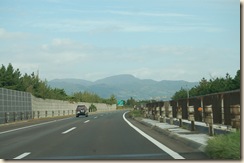
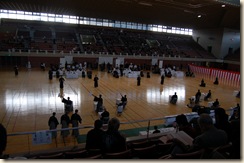
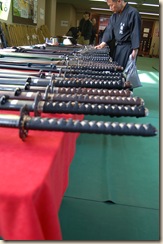
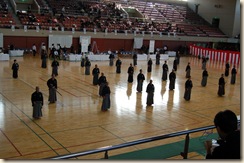

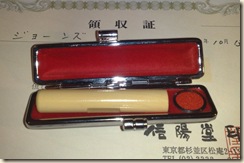


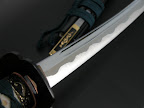




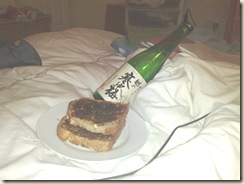




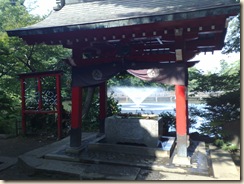
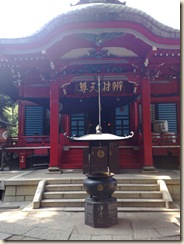
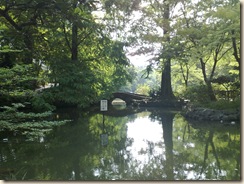
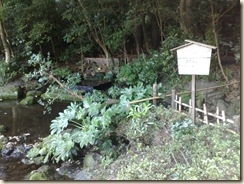


 A mild-mannered,if occasionally grumpy English middle-aged beer lover with a passion for Japan, martial arts, travel and a whole load of other things.
A mild-mannered,if occasionally grumpy English middle-aged beer lover with a passion for Japan, martial arts, travel and a whole load of other things.